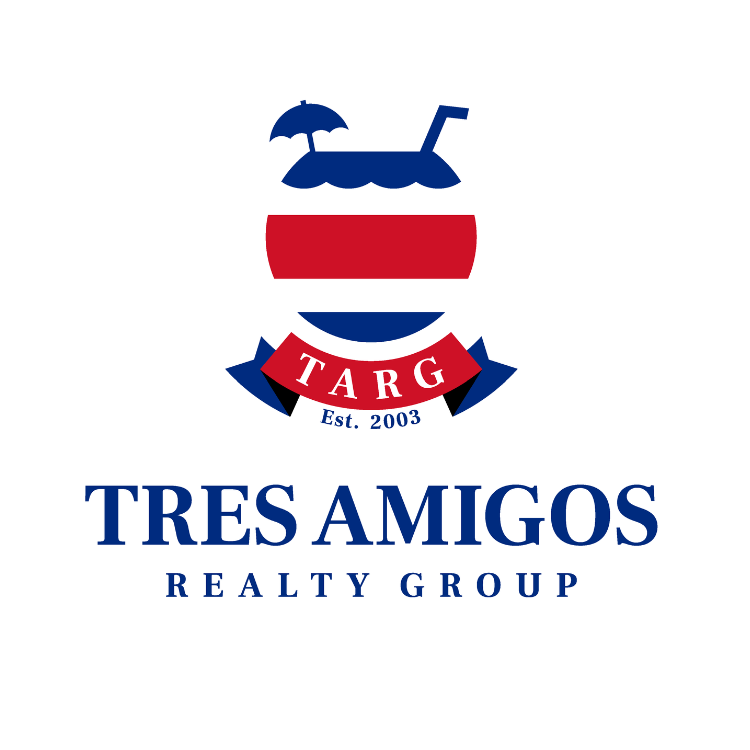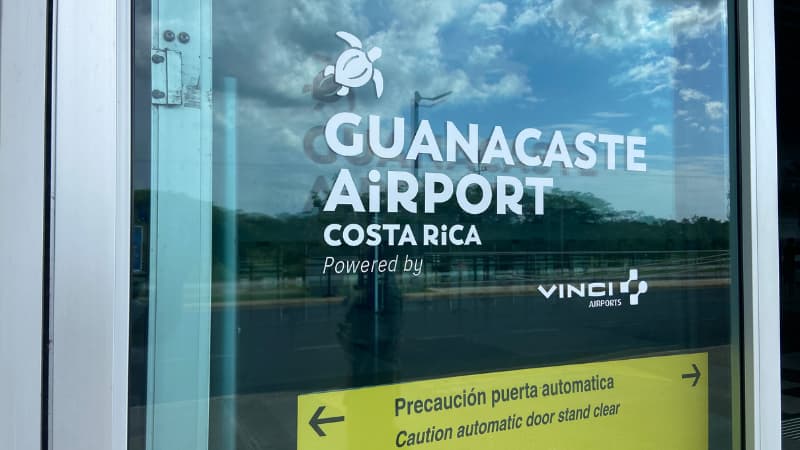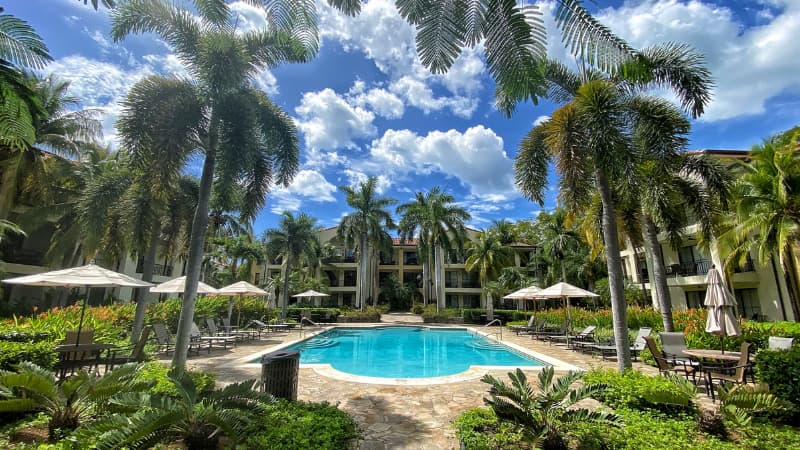What are the risks involved with investing in Costa Rican real estate? And how can you maximize your rewards when you invest?
Thorough research, local partnerships, and professional advice are key to making informed investment decisions.
Costa Rica is an outdoors enthusiast’s Mecca. It’s famous for its awe-inspiring natural beauty, tropical climate, friendly people, incredible biodiversity, emerald mountains, active volcanoes, jaw-dropping beaches, world-class sport fishing, picturesque hiking – I could go on and on.
Its reputation for being a beacon of social and political stability makes Costa Rica’s democracy a role model for Central America. Add to that, it’s also a relatively safe country to visit and live in – safer in many respects than the U.S. or Canada.
All of this has made Costa Rica a favorite worldwide tourism destination. It’s also made it attractive to people want to carve out their own little piece of paradise.
Are you considering investing in Costa Rican real estate?
Maybe you’re someone who wants to make the move, buy a home in the mountains, and retire in Costa Rica – all while you make some rental income on the side.
Maybe you just want a beach vacation condo that you can visit during the insufferable Chicago winter and rent short-term during the rest of the year. Maybe you’re a land speculator looking for development property. Or maybe you’re an urbanite looking for a commercial property investment in a downtown area.
Costa Rica has all of that and more. But what are the risks involved with investing in real estate here? And how can you maximize your rewards, should you choose to invest?
HERE ARE THE RISKS
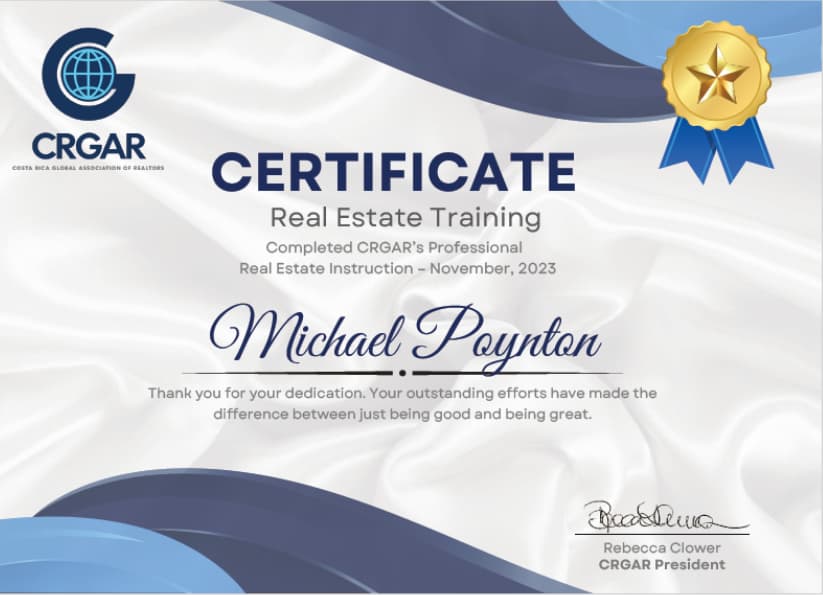
It’s the Wild West. Find a reputable and experienced real estate agent and real estate lawyer.
It’s important for you to understand that the real estate “profession” in Costa Rica is not regulated the way it is in the U.S. There is no licensing entity, no Office of Professional Regulation, no licensed real estate brokers. No one has to pass a state licensing exam.
Anyone and everyone may call themselves a “real estate agent.” And lots of people do.
Also, there’s no universally recognized Multiple Listing System (MLS) in Costa Rica. The Costa Rica Global Association of Realtors (CRGAR) has begun to make inroads into creating an MLS that functions in reality the way it should in theory. But it’s going to be a long road. Currently, the CRGAR MLS is only available to its members.
What this all means is that it can be very difficult to find sales “comps” in the area in which you’re searching for investment property.
Finding a reputable agent who is experienced and has empirical knowledge of property sale prices in the area will be very important, and something upon which you’ll rely heavily. With a little homework and a lot of questions, you’ll be able to find the right real estate agent in your area. Look for the following qualifications in a real estate agent.
- Are they a member of the Costa Rica Global Association of Realtors (CRGAR)? CRGAR’s membership requirements are strict and include mandatory professional real estate instruction classes specifically tailored to Costa Rica real estate.
- Are they certified by the National Association of Realtors (NAR). Only agents who are certified may use the trademarked title of REALTOR®.
- Are they certified by the Superintendendencia General de Entidades Financieras (General Superintendency of Financial Institutions, or SUGEF)? Certified agents must be Costa Rican nationals or have Permanent Costa Rican Residency to legally work in the capacity of a real estate agent.
Finding a reputable lawyer who is experienced in real estate contracts, agreements and due diligence will be somewhat easier. The legal profession is regulated in Costa Rica and lawyers must be licensed to practice law here. Your lawyer should be able to help you in your search for a good real estate agent also – and vice versa.
Performing due diligence on properties in Costa Rica is of paramount importance before you enter into any type of purchase agreement. Your lawyer will be your instrument to make sure that what you’re investing in is as it’s billed. And, because there are no standard real estate documents, it will be important for your lawyer to review all letters, contracts, or agreements you may be signing.
Any sort of buyer protection language may not be included in contract language. A good lawyer and real estate agent work as a team to protect you and reduce your risk using legal documents that are proven and airtight. Treat these people with kindness and respect. They are your closest allies.
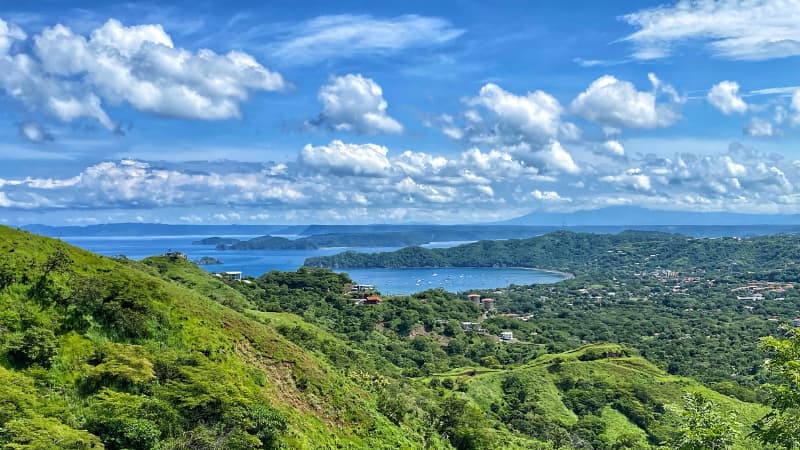 Promises, promises. Buy what is there now. Don’t buy on the promise of what will come.
Promises, promises. Buy what is there now. Don’t buy on the promise of what will come.
Many developers and real estate agents may try to sell you properties citing plans for future amenities or projects in the nearby area, such as new roads, luxury resorts, golf courses, marinas, hospitals, or supermarkets – things that will enhance and appreciate the value of the property. In Costa Rica, plans are just that – plans. And often – but not always – they remain plans for months, years, or forever.
Mitigate risk by making sure project developers have a proven track record and money in the bank. Make sure they have the right municipal connections and relationships in place for obtaining permits and that they have reputable project engineers and architects representing them. Look at the reputations of the individuals who constitute the leadership of the developer enterprise.
A lot of things can change or go wrong with some of the best laid plans in Costa Rica. So, if your real estate agent is trying to sell you a property by talking up the neighborhood because it will be adjacent to a new, “exclusive”, “luxury”, 5-star resort and spa – someday – be skeptical about taking the bait. That someday may never come.
(Sidebar: The words “exclusive” and “luxury” are far and away the most overused and abused words in Costa Rican real estate. Do your due diligence: Is it REALLY exclusive or luxurious?)
The same applies for planned developments or gated communities that are available for pre-sale. “Pre-sale” is often code language for, “We don’t have the money to construct the project, so we need your money to get it off the ground.”
If there’s not enough money in the developer’s coffers to realize the project, then there’s the distinct risk that you may never own a piece of it. Or you may own a piece of something that will never be finished once the money runs out – and you’ll be left holding the bag.
Even worse, there have been many reported cases of developers “disappearing” with the down payments buyers put down on pre-sale properties. Poof! Gone!
Who owns it? Avoid buying untitled property.
Let’s say you’re looking for some rural property away from it all. You want a big piece of land – “land spreadin’ out so far and wide.” You’re not in any real hurry to make a buck. You’re searching for an investment property that will yield long-term appreciation. Something you leave to your kids. Your real estate agent finds a good sized, family owned “finca” (farm) that’s priced to sell. You fall in love with it and decide that it’s time to make an offer!
Upon completing due diligence on the property, your lawyer contacts you and gives you the bad news – it is untitled property. The property has no “número folio real” (property identification number) and does not appear in the “Registro Nacional” (National Registry). Total buzz kill. But it happens.
All titled property in Costa Rica must be registered in the “Registro Nacional” (National Registry). Every property is assigned a “numero folio real,” sometimes referred to as a “finca” number), upon being officially recorded.
Unfortunately, it’s very common to find properties that have been occupied by families for generations, with well-defined fence lines, familiar neighbors, and undisputed borders – but that have never been registered in the “Registro Nacional”. They are, therefore, considered untitled property – property with no official ownership.
When you’re dealing with untitled property, there is no way of knowing the name of the entity who owns the property (it could be a person or a corporation), its boundary lines as delimited in the “plano catastrado” (a registered survey of the property), any “gravámenes” (mortgages or liens on the property), “servidumbres” (rights of way / easements), or other recorded documents that may affect the title of the property.
Even in Costa Rica, it’s tough to buy or sell something no one owns. And though untitled property can become titled by following legal procedures as set forth by Costa Rican law, the process is a long and arduous one. Therefore, getting involved with untitled property in Costa Rica should always be avoided. The risk just isn’t worth it.
AND NOW, THE REWARDS!
 Gimme a break. A tax break, preferably!
Gimme a break. A tax break, preferably!
Get ready to spend significantly less on real estate taxes than what you’re probably used to paying in the U.S. and Canada. One of the great things about buying Costa Rican property is that the taxes are comparatively low, as compared to most countries.
You’ll pay only 0.25% tax on the registered property value. Here’s an example: On a property with a registered value of $200,000, you’ll pay $500 annually in real estate taxes. Pretty good deal – and a nice reward!
It should be noted, however, that there’s an additional real estate tax here called the “Impuesto Solidario Para el Fortalecimiento de Programas de Vivienda” (Solidarity Tax for the Strengthening of Housing Programs in Costa Rica), better known as the Luxury Home Tax. It’s assessed every three years but paid annually and is based on a sliding scale from a minimum of 0.25% to a maximum of 0.55% on residential properties valued from about ~$540,000 to $3,255,000. The value of the property is assessed based on the value of the main construction combined with the value of permanent installations, like pools and fences – the value of the land is not included.
So, if you purchase a property valued at $600,000, figure on paying another .30% in luxury tax ($1,800) on top of your base property tax ($1,500). STILL, a pretty good deal!
Corporate power. A Costa Rican “LTDA” that holds title to your property protects you and gives you more flexibility and anonymity.
Foreigners and Costa Rican citizens have exactly the same rights under the Costa Rican Constitution to own fee-simple property. It’s the law!
But that doesn’t necessarily mean that once you find your dream investment property you’ll want to purchase it in your name. Putting the property in your name can increase your personal liability risk in the event you’re involved in a lawsuit. It also does not provide you with a level of anonymity in the Public Registry. It might be better to keep things a little less personal.
Buying your property in the name of a Costa Rican “Sociedad de Responsibilidad Limitada”, or “Limitada” (basically, a Limited Liability Corporation, or LLC), not only reduces your liability risk, but also gives you a good deal more flexibility when it comes to managing ownership and anonymity. It can also simplify the sales process, if you choose to sell the property at any time.
A Costa Rican “Limitada” (LTDA) is an entity apart from you, so to speak. So, it – and anything it holds – is not a personal asset for which you are at risk of losing in the event of litigation against you personally. Limitadas are especially useful for multiple investors, or families who want to share ownership and/or control of the real estate investment. They are also a handy legal tool for estate planning. We’ll save that one for another blog post.
Shares of the corporation can be divided amongst shareholders as they deem appropriate. Also, a primary shareholder who has power to sign on behalf of the other shareholders – with “poder sin limite de suma” (loosely translated: unlimited power of attorney) – can be appointed.
That can be really nice if three of your investors reside outside of the country and you want to sell the property. The shareholder with “Poder Generalísimo sin límite de suma” can initiate and complete the transaction on their behalf, without them being physically present in Costa Rica to sign any documents. Obviously, that shareholder needs to be someone trustworthy.
You can also give limited power of attorney to your lawyer so he or she may conduct business on your behalf in the event none of you are physically present in Costa Rica.
If you build it, they will come. Your best real estate investment opportunities are in areas with amenities such as airports, hospitals, clinics, and shopping.
There’s a lot going on down here in Northern Guanacaste. And this means, there are more opportunities for savvy real estate investors to take advantage of. Which in turn can mean increased rewards for their investments.
By doing your homework and hiring the skill set of an experienced lawyer and a reputable real estate agent, you can capitalize on greater investment value by buying property in areas that are more accessible to people – residents, nationals, and tourists alike – with more amenities to serve them. These areas also tend to have high rates of employment for Costa Ricans. They tend to be stable communities with low crime rates and areas popular with foreign travelers.
You can still find areas that are just as beautiful and still relatively convenient, but less developed. They may have fewer amenities, the roads might be a little bumpier, and you may have to drive a little farther to the supermarket. Just keep in mind that it may be a bigger gamble, you’ll be a pioneer of sorts, and you’ll probably be waiting longer to maximize your R.O.I.
Follow the money. Money makes money.
Sniff around. Keep your eyes open. Find out about places where infrastructure and/or amenities are improving or already in place. Proximity to hospitals, clinics, good roads, beaches, national parks, shopping, restaurants, and an international airport are key factors in considering your investment. And let’s not forget telecommunications and broadband. Rely on the same instincts you would rely on back home, if you were looking for a good neighborhood. The smallest house on the most expensive block is the one that’s most desirable for purchasing as an investment.
The same rules apply here in Costa Rica as they do anywhere. There are more opportunities than ever to capitalize on real estate here in Costa Rica. Thorough research, local partnerships, and professional advice are key to making informed investment decisions. And you will truly be rewarded.
“¡Aprovecha el día!” (“Seize the day.”)
